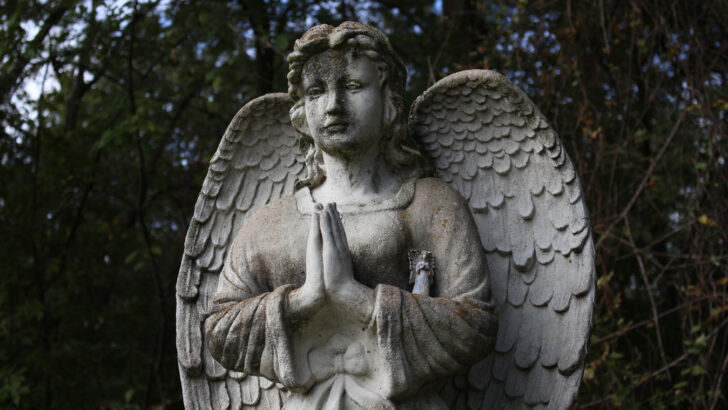Gilbert K. Chesterton once stated that Christianity is the only democracy where even the dead get to vote. In light of that, I share two stories.
A psychologist at a conference I once attended shared this story. A woman came to see him in considerable distress. Her disquiet had to do with her last conversation with her husband before he died. She shared how they had enjoyed a good marriage for more than 30 years, with never more than a minor quarrel between them. Then one morning they had a quarrel about some trivial thing (of which she couldn’t even remember the substance). Their argument had ended in anger and he had stomped out the door to go to work – and to die of a heart attack that day, before they had a chance to talk again.
What awful luck! 30 years without an incident of this kind, and now this, anger in their last words to each other! The psychologist first, humorously, assured her that the fault all lay on her husband’s part, in his choosing to die at that awkward moment, leaving her with that guilt!
More seriously, he asked her, “if your husband was here right now, what would you say to him?” She answered that she would apologise and assure him that considering all their years together this little incident meant nothing, that their love for each other utterly dwarfed that mini moment. He assured her that her husband was still alive in the communion of saints and was with them right now. Then he said to her, “why don’t you sit in this chair and tell him what you just shared, that your faithful love for each other completely obliterates your last conversation. Indeed, share a laugh over its irony.”
Suicide
A second story. Recently, I met with a family whose father had died by suicide 20 years ago. Through the years, they had made peace with that, though, like most families that lose a loved one to suicide, some uncomfortable residue remained. They had long since forgiven him, forgiven themselves for any failure on their part, and forgiven God for the unfairness of a death like his. But something remained unfinished, something they felt but couldn’t quite name (despite 20 years of time, despite forgiveness all round, and despite a more empathic understanding of suicide). I couldn’t quite name it either, but I could suggest a remedy.
I suggested they have a ritual celebration in which they would celebrate their love for him, celebrate the gift that was his life, and work at redeeming the unfortunate manner of his death. Here’s the suggestion: Pick a day, perhaps his birthday or even the anniversary of his death. Meet as a family and have a joyous celebration, complete with champagne, wine, and balloons. Share stories about him, highlighting stories in which he was joyous, in which he was laughing, in which his spirit thrived, and in which he brought a special energy into a room. Celebrate that with food, wine, champagne, laughter, and love. He will be there with you. You are still in a communion of life with him. He is joyous now. Celebrate that with him. Lift away the twenty years of heaviness. The absence of this kind of celebration is what still lies unspoken between you and him.
Union
Stories like this can sound fanciful, wishful thinking, but they take their ground in solid, defined Christian doctrine, that is, they are rooted in a faith that tells us that we are in living union with each other inside the Body of Christ. As Christians, we believe (as a doctrine in our faith) that we are in unity with each other inside a living body (an organism, not a corporation) and that this union in one body takes in all of us, both the living and the dead. We can communicate with each other, apologise to each other, make amends to each other, and celebrate each other’s life and energy, even after one of us has died.
Communication
As Christians, we are invited to pray for the dead. Not surprisingly, certain Christians balk at this, protesting that God doesn’t need to be reminded to be merciful and forgiving. They are right, but in the end that is not the reason we pray for our deceased loved ones. Despite the stock formulae prayers we generally use which ask God to be merciful, the real intent of our prayer for the dead is for us to stay in touch, in a communication of life with them. The real intent of our prayers and ritual celebrations for the dead is to continue to be in a more deliberate communication of life with them, to finish unfinished business, to apologise to them, to forgive them, to ask them to forgive us, to remain mindful of the special oxygen they breathed into the planet during their life, and to occasionally share a celebratory glass of wine with them.


 Fr Ronald Rolheiser
Fr Ronald Rolheiser
